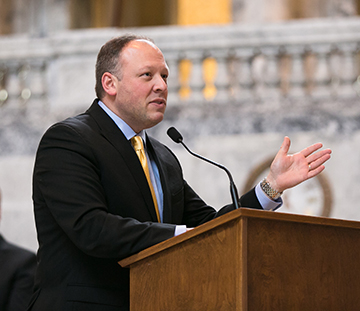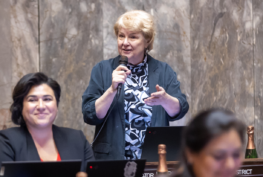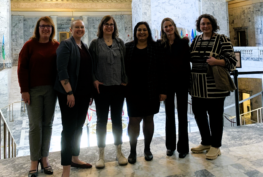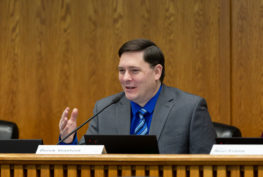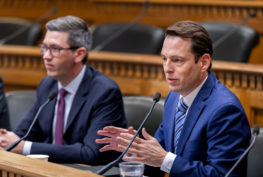Working people and small businesses are facing unprecedented challenges brought on by the COVID-19 pandemic. On Tuesday, the Senate Special Committee on Economic Recovery heard from a variety of experts about ways to help people and businesses recover.
The bipartisan committee focused its first meeting on a wide variety of topics, including unemployment, regional challenges, challenges faced by small businesses, short and long-term recovery strategies, supply chain issues, and much, much more.
“Solving this crisis will require us to be thoughtful, creative and resist the temptation to retreat to our ideological corners. I was encouraged by the collaborative nature of this first meeting,” said Sen. David Frockt (D-Seattle) chair of the committee. “Washingtonians are suffering. Small businesses are shuttered. It’s our job to find a way back, and we can only do that together.”
The seven member committee heard from prominent economists, including Austan Goolsbee, Professor of Economics at Chicago University and former Chair of the Council of Economic Advisers under President Obama. Economist Betsey Stevenson, Professor of Economics and Public Policy at the University of Michigan and former Chief Economist at the U.S. Department of Labor also under Obama. Annaliese Vance-Sherman, Labor Economist at the state Employment Security Department and Debra Glassman, Principal Lecturer of Finance and Business Economics at the University of Washington’s Dept of Finance and Business Economics also weighed in.
Frockt said that he felt there were three main takeaways from the inaugural meeting of the recovery committee.
“One, we have to get the virus under control,” he said. “A full recovery simply cannot happen while COVID-19 continues to make its way through our state. Two, we must address access to childcare. People cannot return to work if they do not have reliable, consistent childcare. And three, we must help small businesses and their workforce bounce back, particularly small businesses and workers in communities that have been disproportionately impacted by the pandemic.”
The committee is tentatively scheduled to hold its next meeting on July 21.

